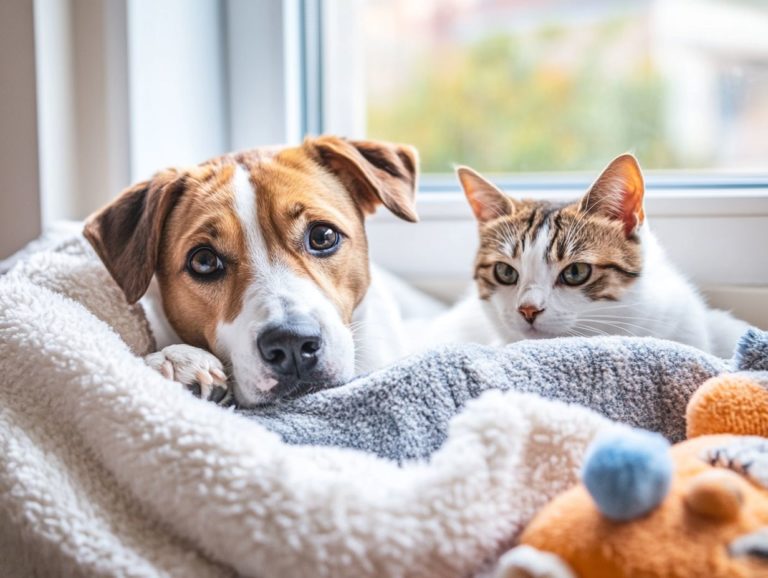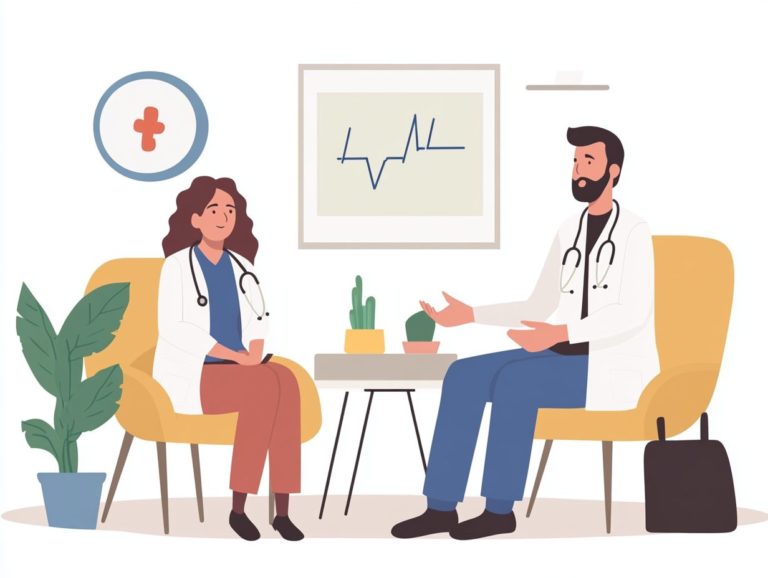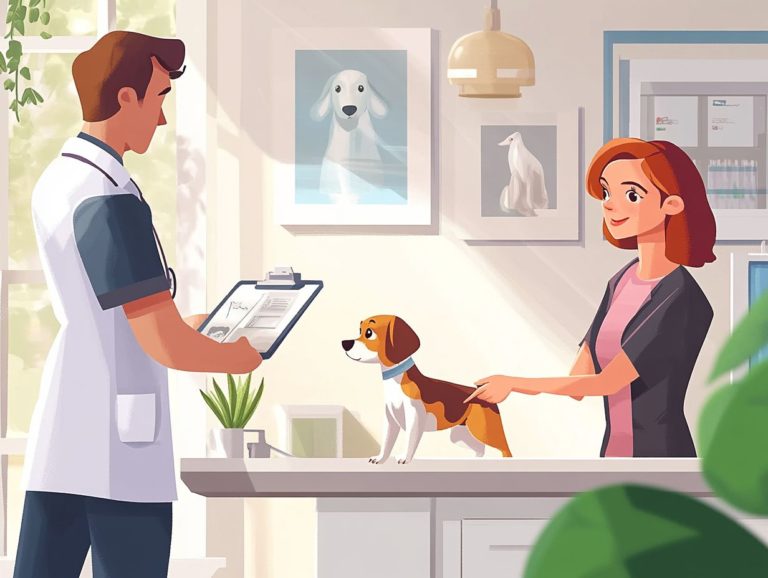How a Consultation Can Change Your Pet’s Life
Regular veterinary consultations are essential for ensuring the health and happiness of your beloved pets, especially as we celebrate Change a Pet s Life Day on January 24. Just like you, your pets thrive on routine check-ups, which can lead to the early detection of health issues and preventive care, including veterinary care and vaccinations.
Let s explore the amazing benefits of regular consultations for your pets. This article covers what you can expect during your visit, signs that indicate your pet may need attention, tips for selecting the right veterinarian, and a breakdown of the costs involved, as well as resources for adopting a shelter dog or adopting a pet.
Your furry friend deserves nothing but the best care Keep reading to learn how to give your pets the best care possible!
Contents
Key Takeaways:
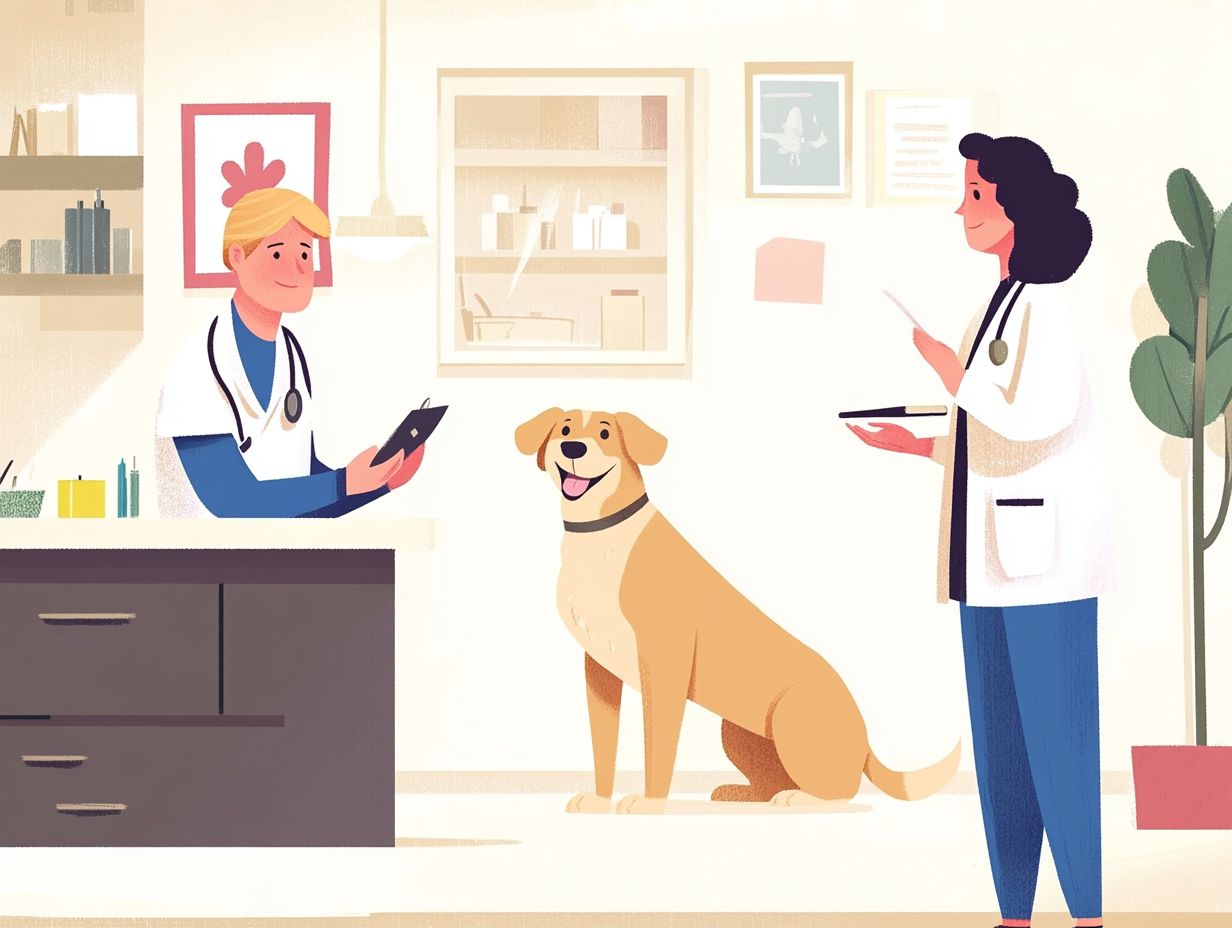
The Importance of Regular Consultations for Pets
Regular consultations for your pets are essential for maintaining their overall health and well-being, particularly as you observe Change a Pet’s Life Day on January 24, a day supported by the Jacksonville Humane Society (JHS). This initiative emphasizes the importance of responsible pet ownership and offers opportunities for volunteering at JHS or donating to JHS.
These check-ups serve not only for early detection of potential health issues but also offer invaluable insights into your pet’s care. From nutrition to grooming requirements, these visits help create a vaccination schedule that protects them from common diseases. They also help build a strong rapport with your veterinarian, ensuring your pet receives compassionate, personalized care that caters to their individual needs.
Benefits for Overall Health and Well-being
Don t wait! Regular consultations provide essential benefits for your pet s health. These visits help create a vaccination schedule that shields them from common diseases while also playing a pivotal role in the early detection of potential health concerns.
Early intervention can dramatically enhance treatment outcomes, paving the way for a happier, healthier life for your furry companions. To make the most of these visits, learn how to prepare for a pet anxiety consultation. During these consultations, you’ll receive valuable nutritional guidance, enabling you to make informed decisions about your pets’ diets.
Initiatives such as medical fostering (temporary care for pets with medical needs) at shelters and the shelter staycation program provide vital support, promoting not just pet health but also increasing the chances of adoption. By participating in programs like the shelter staycation program, your pets benefit from specialized care and enriched environments.
What to Expect During a Consultation
During a veterinary consultation, you can anticipate a thorough evaluation of your pet’s health. This process includes discussions about medical history, addressing any current concerns, and exploring the best practices for their care. After the consultation, it’s important to know how to assess your pet’s progress, whether they are a recent addition from a shelter or have been with you for years.
Common Procedures and Examinations
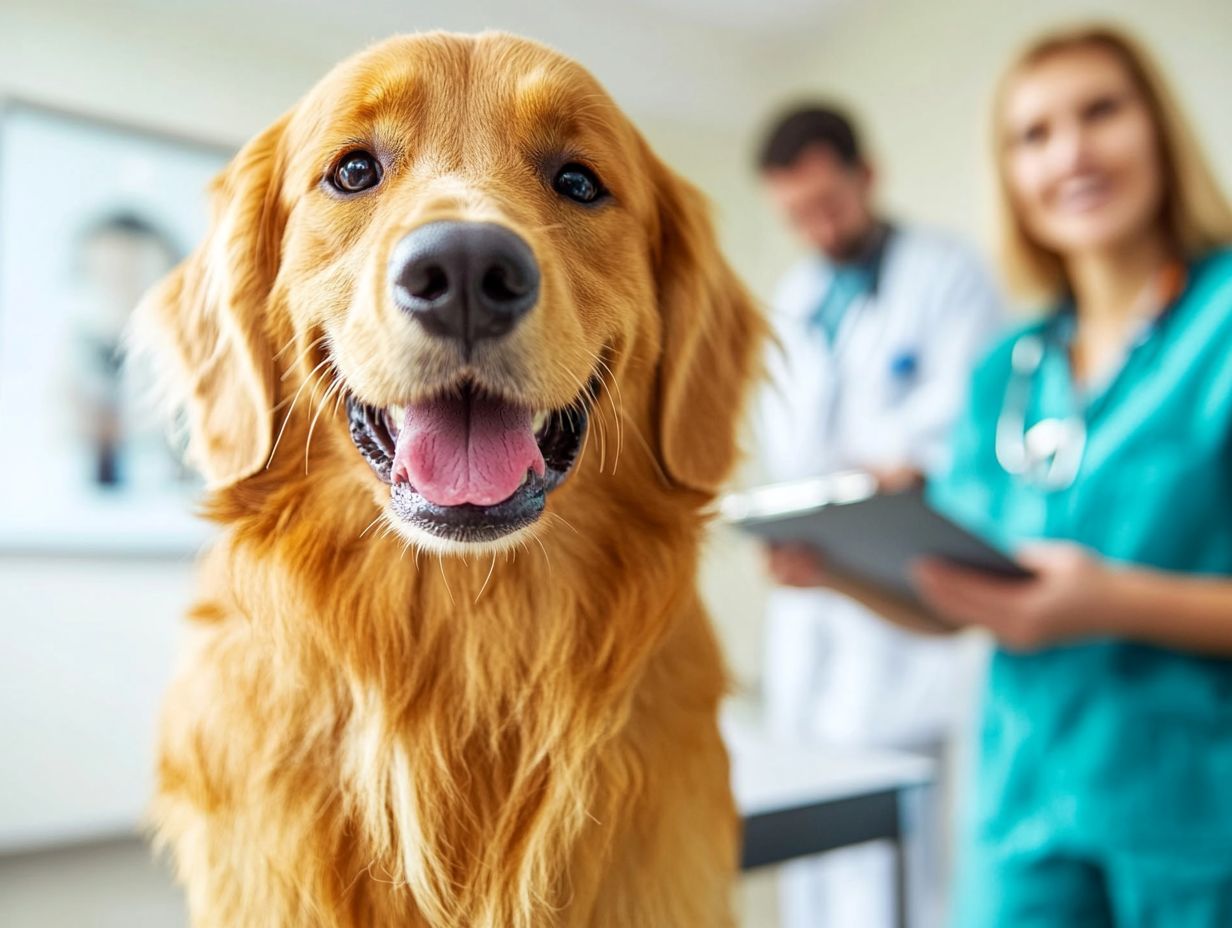
During your veterinary consultations, you can expect a range of standard procedures. These include physical examinations, vaccinations, and grooming assessments, which are essential for your pet’s health and comfort. You may also explore options for adopting a shelter dog.
Veterinarians typically conduct blood tests to uncover any underlying health issues that may not be immediately visible. They will guide you on how to best care for your pet in the long term. They also evaluate dental health, checking for signs of decay or gum disease, both of which can significantly impact your pet’s overall well-being.
Veterinarians are here to ensure you know the best ways to care for your pet! They educate you on proper grooming techniques and help you understand the benefits of regular check-ups in caring for pets. This not only maintains your pet’s hygiene but also fosters a deeper bond between you and your furry companion.
By sharing valuable insights, veterinarians enable you to take proactive steps in safeguarding your pet’s health, ultimately enhancing their quality of life.
Signs that Your Pet May Need a Consultation
Recognizing the signs that your pet may need a consultation is essential for their well-being and could save their life if you notice symptoms early enough. Look out for symptoms such as alterations in behavior, appetite, or energy levels these can signal underlying health issues that necessitate prompt vet care, especially for pets that may be eligible for medical fostering.
Recognizing Symptoms and Changes in Behavior
Recognizing symptoms and changes in your pet’s behavior is crucial. These indicators can signal potential health issues that warrant veterinary attention, reminding us of the importance of responsible pet ownership.
For instance, if your pet is drinking excessively, it could suggest conditions like diabetes or kidney disease, underscoring the need for regular veterinary check-ups. If you notice signs of aggression, it may indicate pain or neurological issues. A sudden bout of lethargy could be a red flag for infections or more serious illnesses.
Being observant of these behavioral changes is key. Take note of any deviations from the norm, including shifts in eating habits or social interactions. If such symptoms persist or worsen, consult your vet today to keep your pet healthy!
Choosing the Right Veterinarian for Your Pet
Selecting the right veterinarian for your pet is a pivotal choice for any responsible pet owner. This decision profoundly influences the quality of care your beloved companion receives, ultimately supporting their overall health and well-being. Consider reaching out to a JHS adoption counselor if you need guidance.
Factors to Consider and Questions to Ask
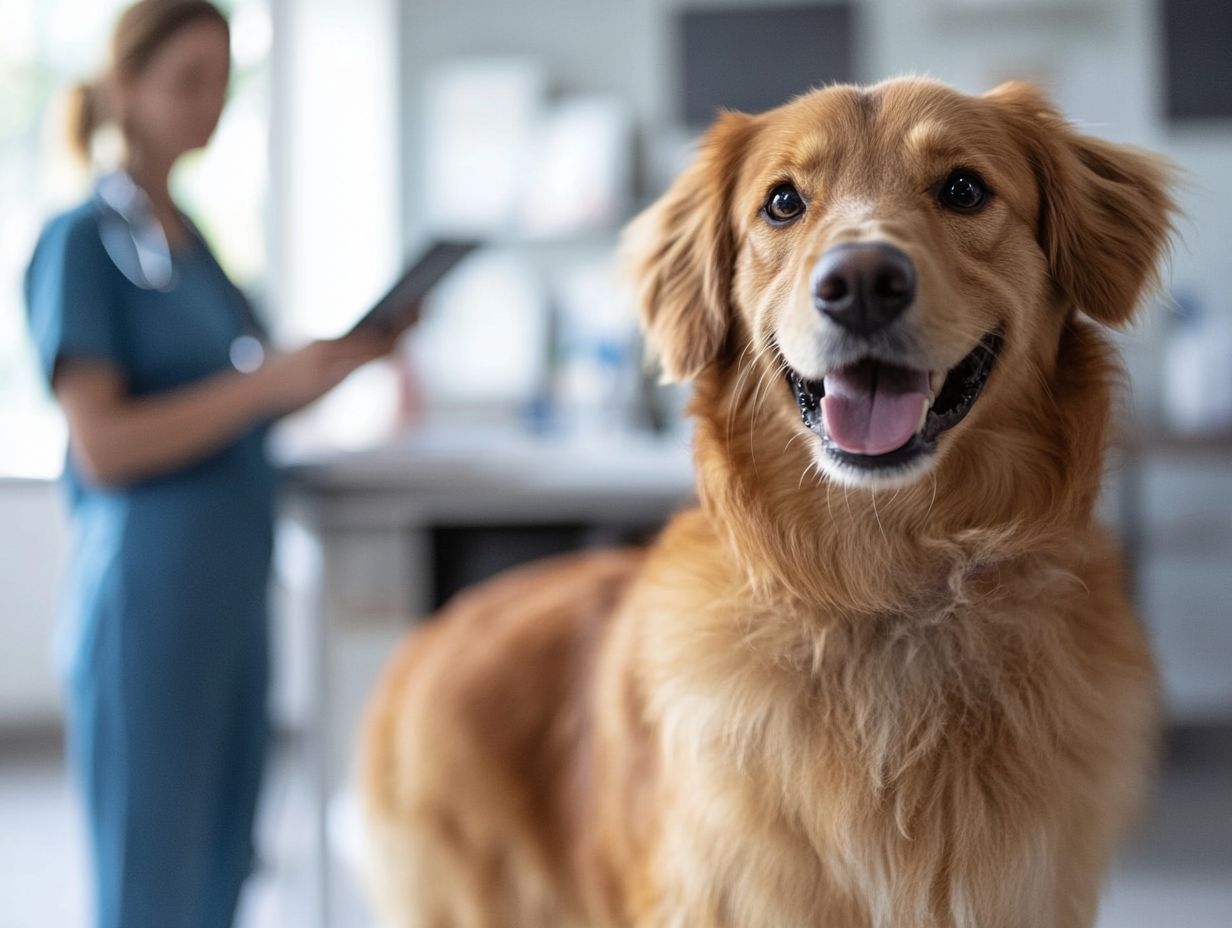
When selecting a veterinarian, it s crucial to take various factors into account and prepare thoughtful questions that will help you evaluate their fit for your pet’s specific needs, such as their experience with fostering a pet.
The experience of a veterinarian is of utmost importance. Seasoned professionals often possess a wealth of knowledge that can be invaluable in diagnosing and treating your beloved animal. Equally significant is the clinic’s facilities; a clean, well-equipped environment can greatly influence the quality of care your pet receives.
Assess the range of services available, such as emergency care, specialty treatments, and preventive services like vaccinations. There are resources for donating to JHS for those interested in supporting their mission.
Another vital aspect is their approach to pet care. Understanding whether they emphasize a collaborative communication style can enhance your relationship moving forward. During your initial visit, consider inquiring about the veterinarian s qualifications, the clinic’s emergency protocols, and how they address pet owners’ concerns during consultations.
Costs of Consultations and Pet Health Care
Understanding the costs associated with consultations and pet health care is essential for you as a pet owner. These expenses can fluctuate significantly, influenced by the services provided and the unique needs of your pet.
Understanding Fees and Budgeting for Your Pet’s Health
Knowing consultation fees and budgeting for your pet’s health helps you provide essential care without the stress of financial strain.
This knowledge prepares you for typical consultation fees, which can vary based on the veterinarian and your location. It s also important to consider ongoing expenses, such as medications for chronic conditions.
Unexpected procedures may arise, so having a financial buffer is wise. Grooming costs can also accumulate, especially for breeds requiring regular maintenance.
By keeping these potential expenses in mind, you can create a comprehensive budget that ensures your pet receives the best care possible.
Organizations like the Jacksonville Humane Society offer valuable resources for financial assistance and donations, including tax-deductible donations through their HSUS Department of Philanthropy.
Frequently Asked Questions
Here are some common questions about consultations for pets. Understanding these, along with the advantages of group consultations for pet owners, can help you make informed decisions for your pet’s health and well-being.
What is a consultation for pets?
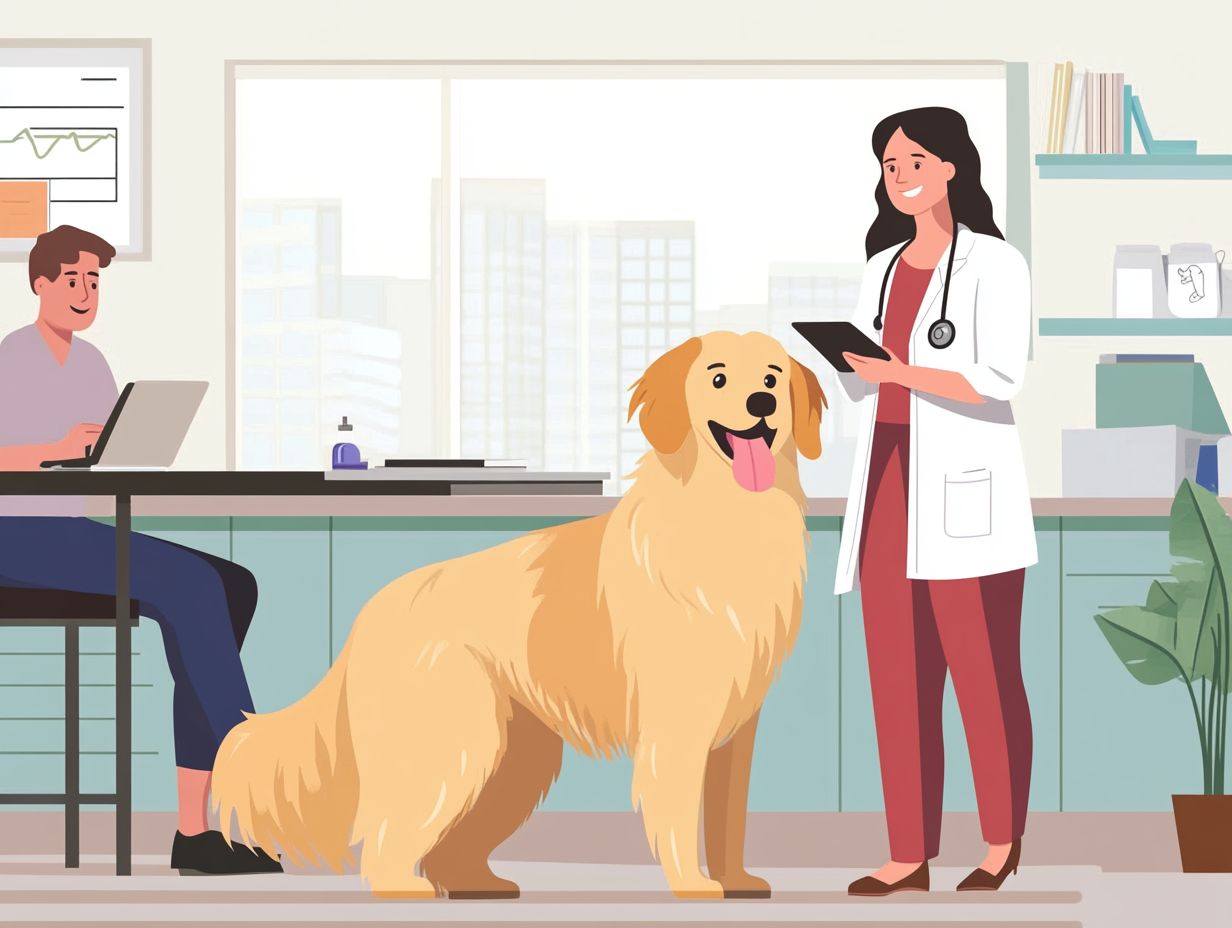
A consultation for pets is a meeting between a pet owner and a professional, such as a veterinarian or animal behaviorist. It allows you to discuss any concerns related to your pet’s health, behavior, or overall well-being, including the benefits of online consultations for pet anxiety and matters related to caring for your pet.
Why is a consultation important for my pet’s life?
A consultation can be vital for your pet’s life. It enables a professional to assess your pet’s current condition and provide recommendations for necessary treatment or behavior modification. This may include identifying the right consultations for your pet, including discussing temporary care options if needed. This is your chance to boost your pet’s health and happiness!
How can a consultation improve my pet’s health?
A consultation improves your pet’s health by allowing a professional to identify any underlying medical conditions or behavioral issues. This paves the way for generous donations to support local shelters. Proper diagnosis and treatment can enhance your pet’s overall health and highlight the benefits of holistic consultations for pets, raising awareness of Change A Pet’s Life Day events that promote responsible pet ownership.
Can a consultation help with my pet’s behavior?
Yes, a consultation can assist with your pet’s behavior. A professional will observe and analyze your pet in various environments, which is crucial in understanding the underlying causes. Understanding the role of pet owners in the consultation process can also aid in the development of an effective behavior modification plan.
What can I expect during a consultation?
During a consultation, you’ll discuss any concerns about your pet’s health or behavior. To ensure a smooth experience, it’s important to know how to handle consultation anxiety in pets. The professional will gather information about your pet’s medical history and may perform a physical exam if necessary. They will also provide recommendations for any required treatment or behavior modification.
How often should I schedule a consultation for my pet?
The frequency of consultations depends on your pet’s individual needs. If your pet has ongoing health or behavior issues, regular consultations may be recommended. To ensure a smooth process, consider preparing your pet for a behavior consultation if you notice any changes or concerns regarding your pet’s well-being.
Don t wait! Book a consultation today and ensure your pet gets the best care!


